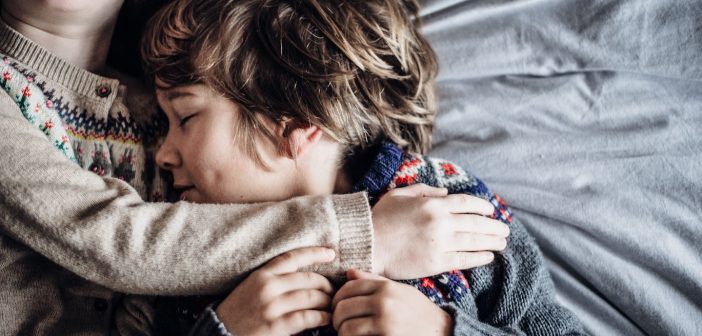Having a brother three years older than me gave me a lot of skills I would have otherwise missed. I can bowl a cricket ball, get out of a wrestling strangle hold, and punch someone in the arm with my knuckle sticking out at just the right angle to make it really hurt.
But new research from the University of Calgary and the University of Toronto has also found having siblings can play a role in the development of empathy.
Siblings tend to spend more time with one another than they do with parents or friends, so they have the potential to have the greatest impact on each other.
A new paper, published in the journal Child Development, showed that children who are kind, supportive and understanding can have an influence on their siblings to behave in a similar way. And if one sibling has strong empathy skills and another doesn’t, the less empathic child will develop more empathy over time.
An empathic child shows feelings of care and concern for others, and learning to be empathic early in life can set a child up to grow into an adult that treats others with kindness, respect and understanding. A child with strong empathy skills will generally grow into an empathic friend, partner and parent.
The study had researchers observing the way young children responded to an adult who pretended to be upset when they broke something, hurt their knee, or caught their finger in a briefcase.

Although it’s commonly believed that older siblings have a greater effect on their younger siblings, researchers found that both older and younger siblings can contribute to each other’s empathy development. What matters is that one sibling has strong empathy already, then it can influence the other sibling, regardless of birth order.
So if you have one empathic child, the others usually benefit.
One factor that did have an effect in the study was age difference. In this instance, researchers only looked at siblings who were born within four years of each other, but they found that when siblings had a larger age difference (three to four years), it was generally the older sibling that influenced the younger one.
And as much as my brother taught me some terrible things when we were growing up, he was also undoubtedly an empathic child, who has now turned into an empathic adult. I like to think I’ve absorbed some of that.
The study also found that the bigger the age gap, the better the older siblings were at modelling those empathic behaviours. I have a daughter six and eight years older than her two younger siblings, and I see an enormous amount of empathy from her. I have always assumed it was because there was enough of an age gap that she never felt a rivalry with her brother and sister.
She was old enough when they were babies to understand that they needed love and care, and she was first in line to offer to help.
As I watch her develop through her teen years, I have high hopes that she will carry that care and concern for others into adulthood.
We hear a lot about sibling rivalry, jealousy and competition, but it’s nice to know there are some big positives to having siblings. Helping each other to live harmoniously and compassionately with others has to be up there as one of the most important.

